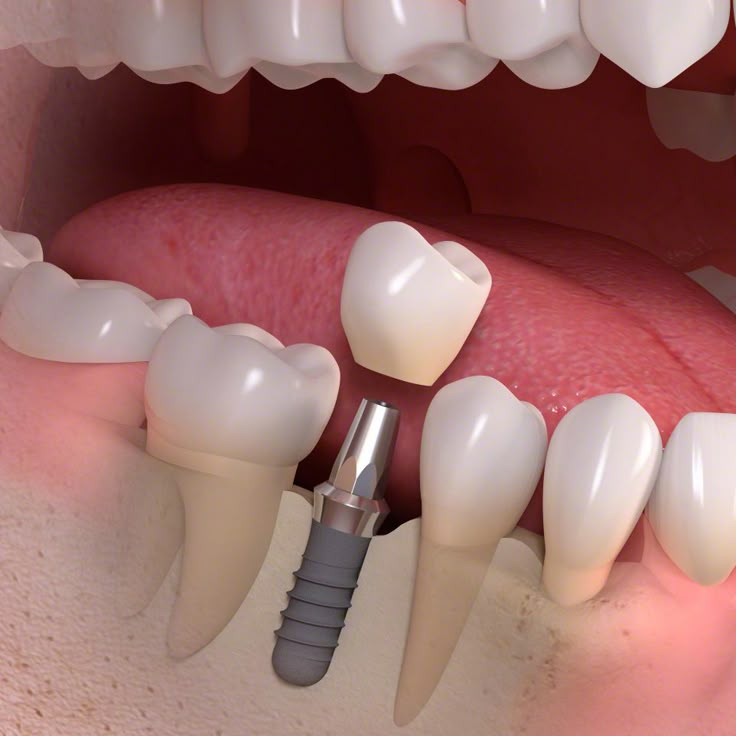Understanding the full timeline—from consultation to final crown placement—can help ease anxiety, set expectations, and guide your decision-making. In this guide, we’ll break down the entire dental implant process, including average timelines, recovery phases, and key factors that may affect your treatment duration.
The entire dental implant process typically takes between 3 to 9 months, depending on your oral health, the need for bone grafting, and how quickly your body heals between stages.
The surgical procedure itself usually takes about 1 to 2 hours per implant.
But the full journey involves multiple phases. Let’s look at each in detail.
How Long Does a Dental Implant Take? What to Expect from Start to Finish?
Breakdown of Each Stage in the Dental Implant Timeline
- Initial Consultation & Treatment Planning (1–2 Weeks)
This is the first step where your dentist or oral surgeon evaluates your overall oral health, reviews X-rays or 3D scans, and determines if you’re a good candidate for implants.
- What happens: Oral exam, diagnostic imaging, medical history review
- Time required: 1 to 2 visits over 1–2 weeks
If bone loss is detected or there’s an existing infection, the implant timeline may be extended to address these issues first.
- Tooth Extraction (If Required) (1 Day to 2 Weeks Healing)
If you have a damaged or decayed tooth, it will need to be extracted before placing the implant.
- Surgical time: Around 20–40 minutes
- Healing time: 1 to 2 weeks before the next step
- Bone Grafting (If Needed) (3 to 6 Months Healing)
Not all patients require bone grafting. But if your jawbone isn’t thick or dense enough, a graft will be needed to support the implant.
- Surgical time: 45 to 90 minutes
- Healing time: 3 to 6 months (depending on graft size and healing speed)
Tip: Ask your dentist about “immediate implant placement” if you’re eligible—it can reduce overall treatment time.
- Dental Implant Placement Surgery (1 to 2 Hours)
This is the core of the procedure where the titanium implant is placed into your jawbone.
- Procedure duration: 1 to 2 hours per implant
- Recovery period: 1 week for soft tissue healing
Although you may return to work within a couple of days, osseointegration—the process where the implant fuses with your bone—takes about 3 to 6 months.
- Abutment Placement (1 Day, 2 Weeks Healing)
After successful osseointegration, your dentist will attach an abutment—the connector that holds the crown.
- Procedure duration: 30–60 minutes
- Healing time: 1 to 2 weeks for gum tissue to heal around the abutment
- Crown Placement (1 to 2 Appointments Over 2 Weeks)
Finally, a custom-made crown is attached to the abutment. This step usually involves one or two visits to ensure fit, function, and aesthetics.
- Total time: Around 2 weeks
Summary Table: Dental Implant Timeline at a Glance
| Stage | Duration |
| Consultation | 1–2 weeks |
| Tooth Extraction (if needed) | 1 day + 1–2 weeks healing |
| Bone Graft (if needed) | 3–6 months |
| Implant Surgery | 1–2 hours + 3–6 months healing |
| Abutment Placement | 1 day + 1–2 weeks healing |
| Crown Placement | 1–2 appointments over 2 weeks |
| Total Time | 3–9 months on average |
What Factors Can Affect the Timeline?
Several personal and procedural factors may impact how long your dental implant takes:
- Oral health status
- Smoking habits (can slow healing)
- Bone density
- Number of implants needed
- Type of implant system used
- Adherence to post-operative care
Final Thoughts: Patience Pays Off
While the dental implant procedure does take time, each stage plays a crucial role in ensuring long-term success. From osseointegration to custom crown design, the process is designed to deliver a natural, functional, and permanent solution for missing teeth.
- Bottom Line: Plan for 3 to 9 months from start to finish—and work closely with your dental professional to optimize healing and results.
Need a trusted opinion?
Always consult a board-certified oral surgeon or implant dentist to get a personalized treatment timeline based on your oral health.
Frequently Asked Questions
Can dental implants be done in one day?
Some clinics offer same-day implants, also known as immediate load implants, but these are only suitable for select patients with excellent bone health.
Is the dental implant process painful?
Thanks to local anesthesia and sedation options, most patients experience minimal discomfort during surgery. Some soreness after the procedure is normal and typically managed with over-the-counter pain relief.
Is it worth waiting months for an implant?
Absolutely. Dental implants offer superior stability, longevity, and a natural look and feel compared to dentures or bridges. The time investment pays off in long-term benefits.

